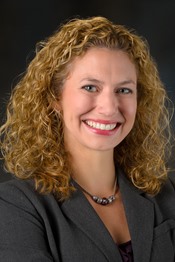SIIM-AAPM Joint Symposium On Machine Intelligence in Medical Imaging
B Landman1*, K Brock2*, J Fessler3*, K Andriole4*, (1) Vanderbilt University Medical Center, Nashville, TN, (2) UT MD Anderson Cancer Center, Houston, TX, (3) University of Michigan, Ann Arbor, MI, (4) Brigham & Women's Hospital, Harvard Medical School, Branford, CT
Presentations
10:40 AM Challenges and Opportunities in Validation of AI for Medical Imaging - B Landman, Presenting Author
11:05 AM Harnessing AI to Enable Advanced Image-Guidance in Interventional Procedures - K Brock, Presenting Author
11:30 AM Joint Optimization of Learning-Based Image Reconstruction and K-Space Trajectories for MRI - J Fessler, Presenting Author
11:55 AM Standards-Based Integration of AI Tools into Clinical Practice - K Andriole, Presenting Author
12:20 PM Q&A - J Siewerdsen, Presenting Author
SU-AB-TRACK 3-0 (Sunday, 7/25/2021) 10:30 AM - 12:30 PM [Eastern Time (GMT-4)]
This symposium features 4 invited presentations on the development and application of machine learning approaches, infrastructure, and standards in medical imaging, including experts in health informatics representing the Society for Imaging Informatics in Medicine (SIIM) and image acquisition and reconstruction from the AAPM.
(1) Dr. Bennett Landman will discuss “Challenges and Opportunities in Validation of AI for Medical Imaging.” Artificial Intelligence (AI) is promising to transform how we capture, interpret, and understand medical images from both basic science and clinical perspectives. However, it is becoming increasingly apparent that biases in study populations, site-factors, and imaging designs can have unintended, and sometimes catastrophic, impacts on AI performance. Hence, AI validation is rapidly becoming an essential field of research.
(2) Dr. Kristy Brock will present on “Harnessing AI to Enable Advanced Image Guidance in Interventional Procedures.” AI has the potential to be both an enabling and transformational tool in image guided interventions. The ability to obtain automated, accurate, and consistent segmentation of tumors and normal tissues can enable advanced image analysis, targeting, and treatment evaluation. In addition, AI can transform the way that clinicians can predict the outcomes of treatment, allowing real-time optimization to drive improved outcomes.
(3) Dr. Jeff Fessler will address the topic of “Joint Optimization of Learning-Based Image Reconstruction and K-Space Trajectories for MRI.” Machine learning approaches to medical image reconstruction are of considerable recent interest, especially supervised approaches that use a corpus of training data. Accelerated MRI scans, where fewer k-space points than image voxels are acquired, is a natural setting for such reconstruction methods. Recently, machine learning methods for optimizing the k-space sampling have also had growing interest. This talk will summarize recent work where we jointly optimize non-Cartesian k-space sampling, heeding physical constraints like gradient slew rate, and a learning-based image reconstruction method.
(4) Dr. Kathy Andriole will discuss “Standards-Based Integration of AI Tools into Clinical Practice.” The goal of many machine learning (ML) models is to provide clinical decision support for imaging examination interpretation. But ML can be applied at various points in the medical imaging chain, including at examination ordering, imaging modality protocoling, image creation and quality assessment, study diagnosis, reporting, and billing. Such applications may improve workflow efficiency and reduce errors and cost. Integrating ML tools into the clinical arena is challenging. Topics covered in this presentation include the integration standards required for ML inference implementation at various points throughout the radiological workflow. Illustrative clinical examples will be shown and the role of the medical physicist will be discussed.
Together, these presentations highlight the potential for interaction between experts in health informatics and medical physics to bring machine learning methods to clinical benefit in medical imaging. The joint symposium will reciprocate at the 2021 SIIM Conference on Machine Intelligence in Medical Imaging (CMIMI).
Learning objectives include understanding advances in: (1) infrastructure to enable collaboration on machine learning methods; (2) machine learning methods to enable advanced image-guided interventional approaches; (3) learning-based optimization for MR image reconstruction; and (4) standards for integrating AI in clinical practice.
Keywords
Image Analysis, PACS, Reconstruction
Taxonomy
IM/TH- Image Analysis (Single Modality or Multi-Modality): Machine learning
Contact Email




